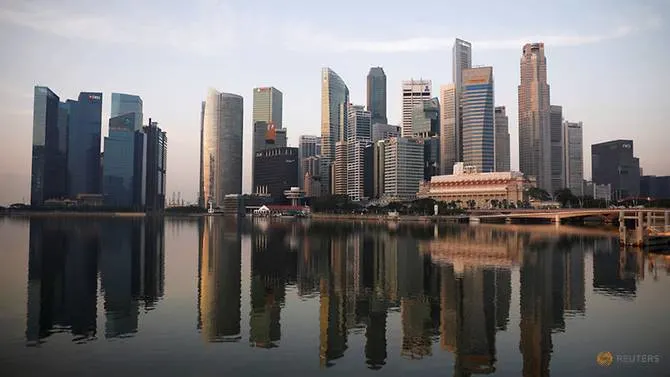Singapore’s 2019 growth forecast cut to 2.1%, trade remains top risk: MAS survey
12 June, 2019

Economists lowered again their forecasts for Singapore’s expected growth in 2019 after the year’s first quarter saw its slowest growth in nearly a decade, the latest economic survey from the Monetary Authority of Singapore (MAS) said on Wednesday (Jun 12).
The survey predicts this year’s gross domestic product to be 2.1 per cent, down from the previous forecast of 2.5 per cent.
Singapore’s economic growth this year will likely be between 2 per cent and 2.4 per cent, the survey indicated.
The Ministry of Trade and Industry (MTI) earlier narrowed its GDP estimates for this year to come between 1.5 per cent and 2.5 per cent.
Economists also expect lower median forecasts for nearly all key macroeconomic indicators.
Manufacturing is currently expected to contract 0.2 per cent, a sharp decline from the previous survey’s 2 per cent growth, while finance is predicted to come in at 3.8 per cent, down from 4.5 per cent.
The outlook was also pessimistic for the wholesale and retail trade sector – from 1.5 per cent to -0.3 per cent – and accommodation and food services – from 2.4 per cent to 1.4 per cent.
Only the construction sector is forecast to improve, from the previous 2.1 per cent to 3.5 per cent in the latest survey.
The latest quarterly survey indicated that escalating global trade protectionism remains a top potential downside risk for 94.1 per cent of the 22 respondents.
Other top downside scenarios include a slowdown in China, cited by 53 per cent of respondents, and a global economic downturn, which was cited by 29.4 per cent of respondents in the June survey as compared to the previous 5.3 per cent.
At the same time, 70.6 per cent of respondents voted the easing of trade tensions between the US and China as a top upside risk to their forecasts, a slightly lower number than the previous survey’s 73.7 per cent.
For 2020, the expected GDP growth dipped slightly to 2.3 per cent from the last survey’s prediction of 2.4 per cent. Economists estimate the most likely outcome to come between 2 and 2.4 per cent next year, remaining unchanged from the previous survey.
TAG(s):
